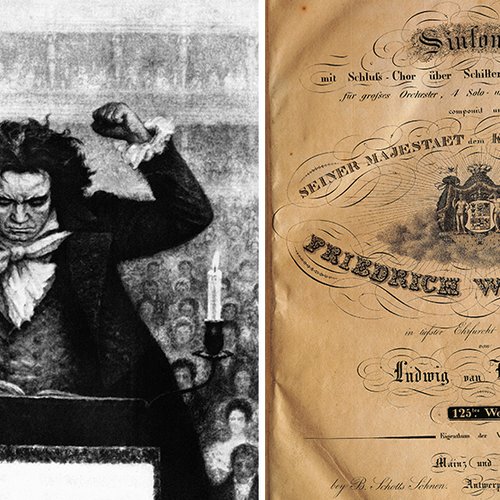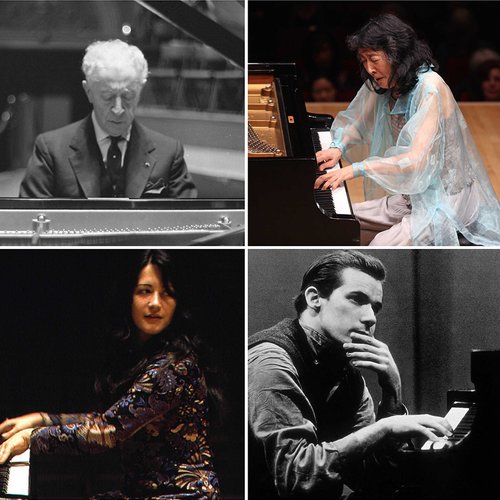A CD can hold exactly 74 minutes of music, thanks to Beethoven
7 May 2024, 13:43

One of the greatest composers in history added to his musical legacy with the invention of the CD, over 150 years after he died.
Listen to this article
Loading audio...
In the late 1970s, executives in the recording and hi-fi industries were hard at work developing a ground-breaking new product. It would revolutionise the music industry as the world knew it, and unlock a new way of engaging with and listening to music for consumers the world over.
They called it: the ‘compact disc’, known today as the CD.
It was a modern product for a modern era. But in designing the shiny metallic disc they went back more than 150 years in history for inspiration, to the great German composer and revolutionary of his own time, Ludwig van Beethoven.
Read more: The surprising role classical music played in the invention of the Post-it Note

Richard Armitage narrates ‘Genius of Joy: The Story of Beethoven’s Ninth’ in radio special
Sony and Philips, the two dominating audio brands of the era, had come together to form a task force in order to develop the CD. One small disagreement got in the way: how much music should one CD hold?
On the one hand, Philips already had access to a CD pressing plant for an 11.5cm-diameter disk, capable of holding up to an hour of music. Sony, on the other hand, did not.
Sony knew that if they agreed to 11.5cm as standard sizing for a CD, they would be handing Philips a huge advantage when it came to producing and selling the discs, but they needed a legitimate reason to object.
Read more: Hear the ‘first’ recording of classical music – an astonishing 1888 performance of a Handel oratorio

This is where Beethoven comes in. The famed Austrian conductor, Herbert von Karajan, had already agreed to act as an ambassador for the new-fangled CD, and was due to endorse the new invention at an Austrian press conference – so they asked him for his professional opinion.
His response came back: it doesn’t really matter how long a CD is, so long as you can listen to Beethoven’s Symphony No.9 in its entirety, without interruption.
Like many others, Karajan had seemingly had enough of getting up between every movement to flip or swap his LP or cassette.
Sony scoured the music archives for a Beethoven recording that suited their needs and – bingo! There it was: Wilhelm Furtwängler’s glacial 1951 recording, of 74 minutes long.
Read more: The remarkable story of Beethoven’s ‘Choral’ Symphony No. 9 and the ‘Ode to Joy’
Is it true?
It makes for a nice story, but in terms of actual evidence there admittedly isn’t a huge amount.
Several sources agree that Beethoven’s ‘Choral’ Symphony was the deciding factor, but differ on who suggested it, from Karajan to Sony’s president, Norio Ohga, or perhaps his wife.
Dutch engineer Dr. Kees Immink, who worked for Philips at the time, disputed that Beethoven’s symphony had anything to do with the decision, and that it was in fact the ‘top brass’ at Philips who made the final call, not Sony at all.
Either way, the invention of the CD made it possible to listen to entire symphonies – Beethoven or otherwise – without interruption, and we are eternally thankful for it.




























